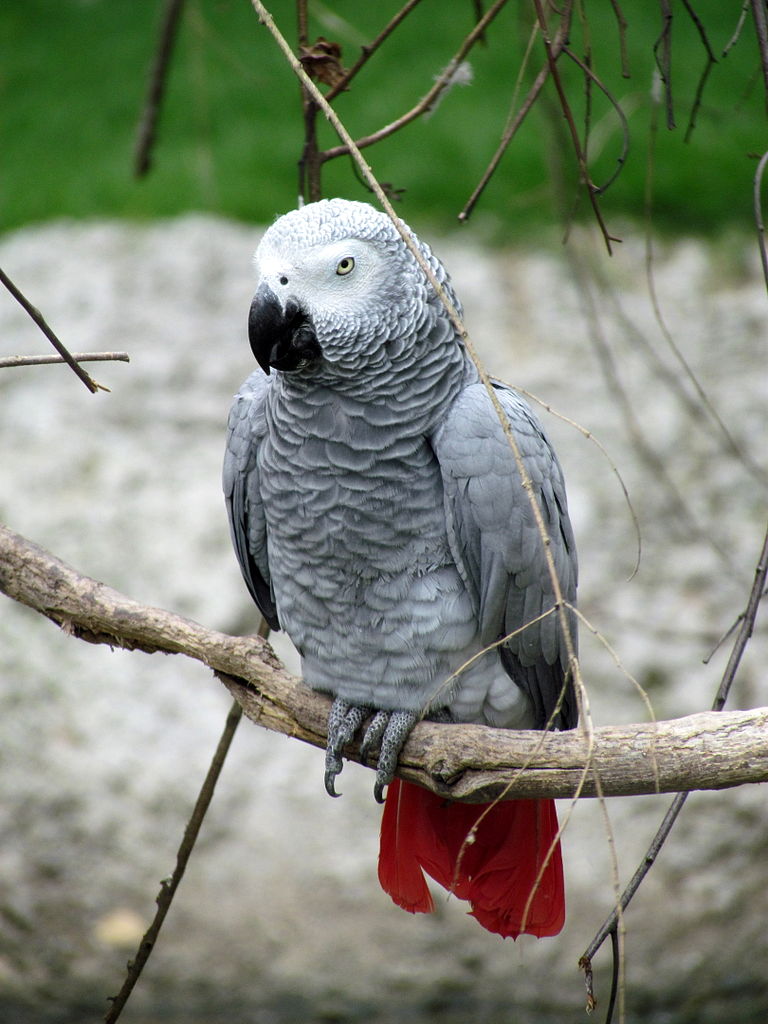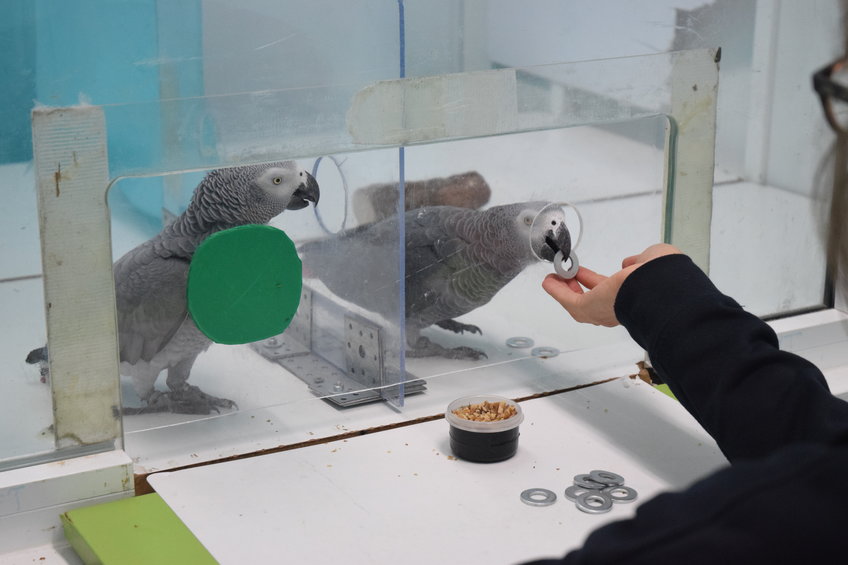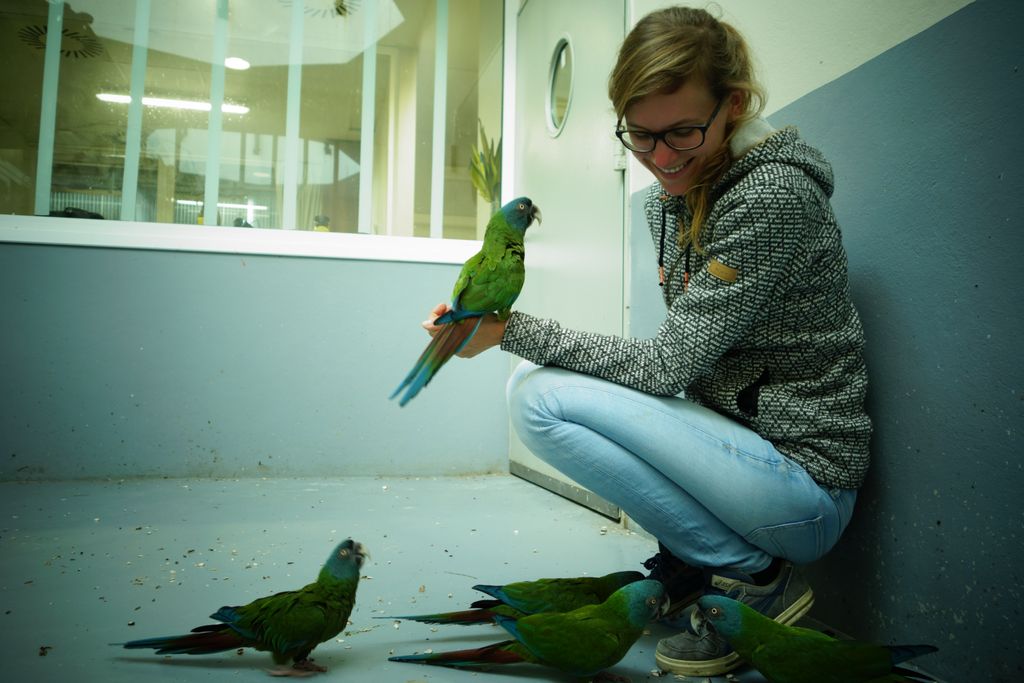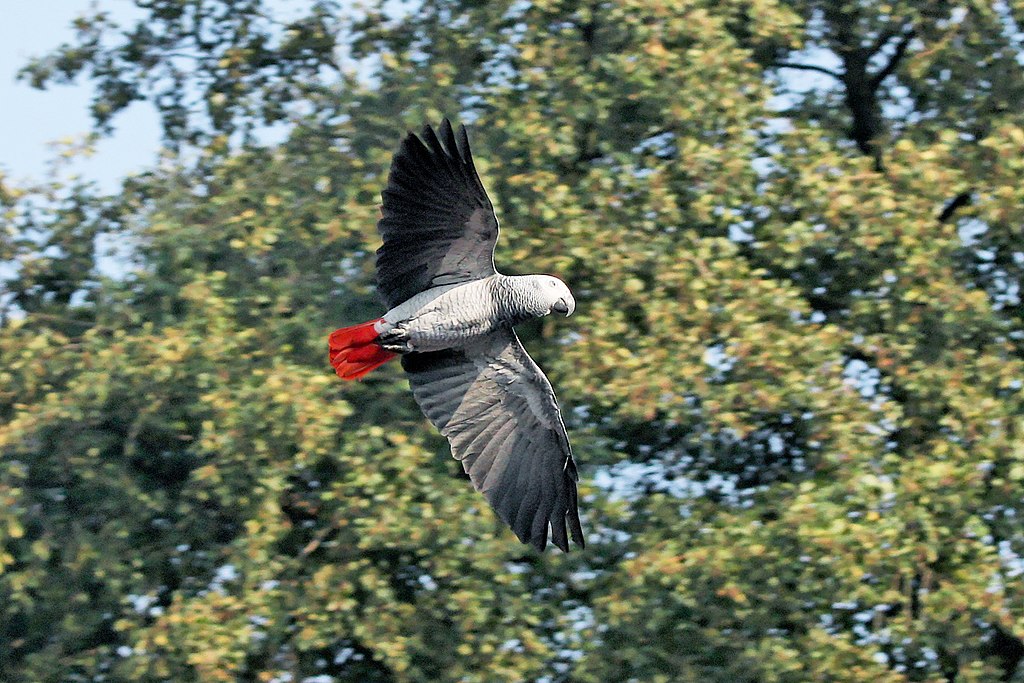People have long known that African grey parrots are clever. Now, new research shows that they are also selfless, and willing to help a partner get ahead, even if doing so doesn’t help them at all.
It’s not unusual for a person to help someone else out without getting anything in return. That’s something humans do. But this behavior is thought to be rare among animals. Some apes and some dogs do it. So do dolphins, rats, and even vampire bats. But as far as we know, most animals do not.
Up to now, that kind of behavior hadn’t been seen in birds. That’s why scientists at the Max Planck Institute for Ornithology created an experiment designed to test whether African grey parrots were willing to help each other out.

(Source: bobistraveling [CC BY], via Wikimedia Commons.)
The first step In the experiment was to teach the parrots how to trade “tokens” for food. The tokens were small metal rings about the size of coins. When the parrots gave these tokens back to the researchers, the parrots were given a walnut, which they enjoyed.
Once the parrots knew how to trade tokens for walnuts, the scientists began the next part of the experiment.
Two parrots were put in clear plastic cages next to each other, with a connecting window between the two cages. There was a feeding window in both cages which allowed the scientists to give walnuts to the parrots.

(Source: Max Planck Institute for Ornithology .)
Then the feeding window was closed for one of the parrots, who had been given ten tokens. The results showed that most of the time, this parrot, who couldn’t trade for walnuts, would pass a token, beak-to-beak, to the bird in the next cage, who could then trade it for a walnut.
The parrots that passed the tokens got nothing. They simply watched as the other parrot got food. Still, seven out of the eight parrots tested passed the tokens over and over again.
“It was not just one token,” said Désirée Brucks, one of the lead scientists. “Many of them transferred all 10 tokens, one after the other, always watching how their partner got the food for it, …they themselves did not get anything.”

(Source: Max Planck Institute for Ornithology .)
And it wasn’t just because they like passing tokens. If the parrot with the tokens saw that their partner’s feeding window was also closed, they rarely passed tokens.
The researchers tried the same experiment with Blue-headed macaws, but the macaws didn’t show any pattern of trying to help each other out. Though they passed a few tokens, it often seemed like they were simply trying to get the tokens closer to the scientists.

(Source: Dr. Désirée Brucks.)
The scientists believe that helping others may be useful to the parrots in the wild, where they live in large groups that change often. The scientists think that helping others could give a parrot a good “reputation” and make it more likely that the parrot will get help from the group when it needs it.
For the macaws, who live in smaller groups which change less often, this could be less important.

(Source: Robert01 [CC BY-SA 3.0 DE], via Wikimedia Commons.)
